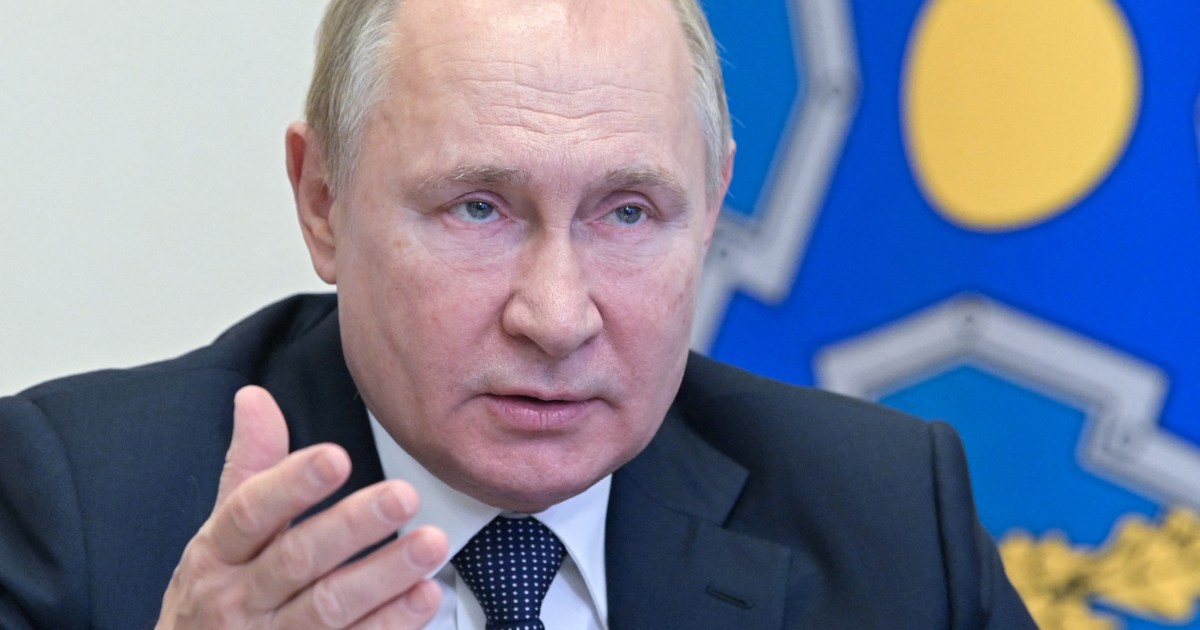A British expert in resolving international conflicts said that the West is keeping pace with Russian President Vladimir Putin in his aggressive tendency, as his current vision of the Ukrainian crisis is based on considering Russia as a "Machiavellian power with an expansionist agenda."
Gabrielle Rifkind - a British mediator specializing in international disputes working with NGOs in the Middle East and the UK - believes that it is this Western view of Russia that determines how he deals with it;
It is based on keeping pace with Putin's aggression, confronting force with force and threats with threats.
“But what if we try to get into the mind of our enemy, and ask him what is driving him to be aggressive? If we do that, can we get out of this spiral and give Putin an exit as well?” asks Rifkind in an article for the Guardian newspaper.
Inspiring history lessons
In answering those two questions, the writer returned to draw some lessons from history, saying that the Soviet Union, when it deployed ballistic missiles on the island of Cuba in the 1960s, close to the United States, nearly ignited a third world war.
Today, does Putin see "sitting there in Moscow, encircled by NATO, the Ukraine crisis poses a similar threat to the deployment of missiles in Cuba?"
Whatever the case, one of Putin's core demands - and Rifkind's talk - is that NATO limit its expansion to Russia's borders, and that Ukraine not join the alliance.
The great powers are suspicious
Russia claims that the United States has long promised Soviet leaders to integrate Russia into a cooperative European security system.
In reality, NATO appeared to be a security framework dominated by America, which still maintains about 75,000 of its soldiers on European soil, and according to the author of the article, the great powers always treat with suspicion the presence of competing great powers on its borders.
And she goes on to say that Putin is ready to threaten war, create chaos and spread misinformation to drive NATO away from Russia's borders, adding that by using coercive diplomacy, Putin has amassed more than 130,000 soldiers on Ukraine's eastern borders, which is a constant threat to its sovereignty.
Rifkind, who is director of the Oxford Process, a conflict-resolution organization that uses back-channel diplomacy, believes that despite Russia's "provocative" behavior, Western governments should not act to escalate the threat of war, because the consequences of any A confrontation between Russia and America in Ukraine will be disastrous for both sides.
Then, the outbreak of a large-scale conventional war may turn into a nuclear war, in the words of the Guardian article.
Humiliation, aggression and saving face
Whatever Western governments feel about Russia's behavior, defusing the conflict and giving Moscow space to reverse its stance is "in everyone's interest."
The writer stresses the need not to underestimate the relationship between "humiliation and aggression", describing Putin as a "bragging man", and that the West adopts a "smart" policy that provides face-saving initiatives "if the West is serious about avoiding war."
One way to do this is for NATO to declare Ukraine a neutral country, and issue a decision not to include it in the alliance for at least 10 years.
The writer concludes her article with a proposal to establish a permanent forum for dialogue in which Russia would be welcomed, in order to reconsider the security system in Europe for the post-Cold War era, which would provide an atmosphere for security cooperation with Moscow.

